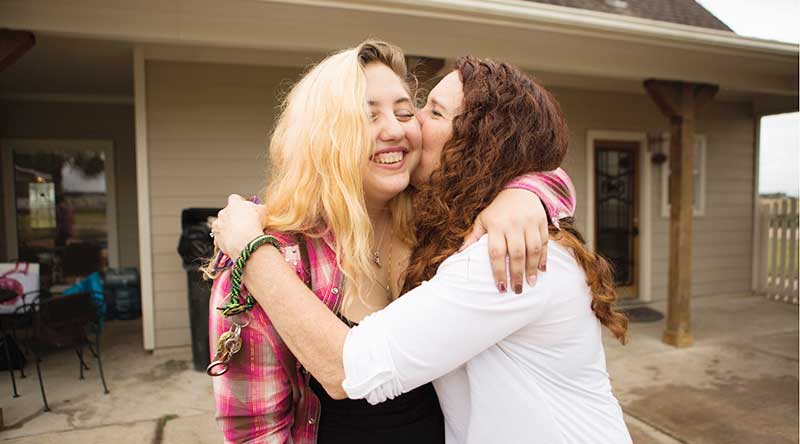“They didn’t give up on me.”

Before I went to Fulshear, I had spent two and a half years in five adolescent treatment programs. I bounced around from program to program and state to state, but I couldn’t quite get to the bottom of what was going on with me. I never went home in between programs, and it felt hectic. As I went from program to program, I started to feel like I would never be able to get help or be “fixed”. It just felt like a waste of time and I thought I was a lost cause.
Fulshear was my sixth residential treatment program. It was my parents’ decision for me to go to Fulshear, and again I was sent directly from the adolescent program to Fulshear’s program. When I first found out I would be going, I was really upset and thought it was just another waste of time and money. I thought it was so pointless that I actually almost signed myself out when I first got to Fulshear! Fortunately, I decided to stay.
It took me a long time to realize that Fulshear wasn’t the enemy. It felt like it was me against my whole team. I think the coolest part of treatment was coming to understand that they were all on my side. I had never felt that in any of the other programs I had been in, and it was a pretty cool feeling.
“…they were all on my side. I had never felt that in any of the other programs I had been in.”
While on the ranch, I made some amazing connections that I plan on continuing for the rest of my life. After being in adolescent treatment for so long, I was very good at pushing people away and making them get out of my life. And I think what helped the most at Fulshear was that they wouldn’t runaway or leave whenever I asked them to, or when I pushed them away. They stuck it out with me through all of the crazy, hard times. I guess the right way to say it is that they didn’t give up on me.
Fulshear was different from the treatment centers I had been in before. The adolescent programs were more behavior based, but Fulshear was more “core” based. So that meant I was able to get to the root, or core, of what was going on rather than focusing on everything else around it. I think that’s why I actually graduated from Fulshear instead of being moved to another program.
“I was able to get to the root, or core, of what was going on rather than focusing on everything else around it.”
I also worked a lot on attachment. I’m adopted and I have reactive attachment disorder. While in the program, I learned a lot about how my attachment system works. I now understand how I function in relationships with others, as well as the relationship that I have with myself. Attachment also plays into depression and anxiety, so I think that was the biggest thing I worked on at Fulshear.
“I now understand how I function in relationships with others, as well as the relationship that I have with myself.”
Each week I had an individual therapy session and a family therapy session. The good thing about the way they did family sessions at Fulshear was that it wasn’t just about me. It was also about how my mom and dad work, so we were able to figure some things out about them. That was really helpful and it helped me understand a lot of things. They’ve done a lot of work on themselves. The core issue/core meaning model helped with my dad a lot, and learning about reactivity helped my mom be able to differentiate between me and her. Because of the family work we did, I think my parents understand a lot more about how I work and what goes on with me. Now that I’m out of treatment, I think the work they’ve done is going to be really helpful with the transition back home.
Moving to the apartments at Fulshear helped me with simple life skills, like keeping a clean apartment, getting along with my roommates, and learning to problem solve with my roommates. It also helped me be able to take care of myself. I learned how to manage the little things, and also with the big things like keeping myself safe. I learned to do life without being micromanaged by staff, as I had been since I entered my first adolescent treatment program.
In the few days I’ve been home, I’ve been looking for a job and already have two interviews scheduled! I’m also going to get my driver’s license soon. Eventually, I’ll move out and have my own apartment. I’ll have friends, a job, and a car, and I’ll be independent!
